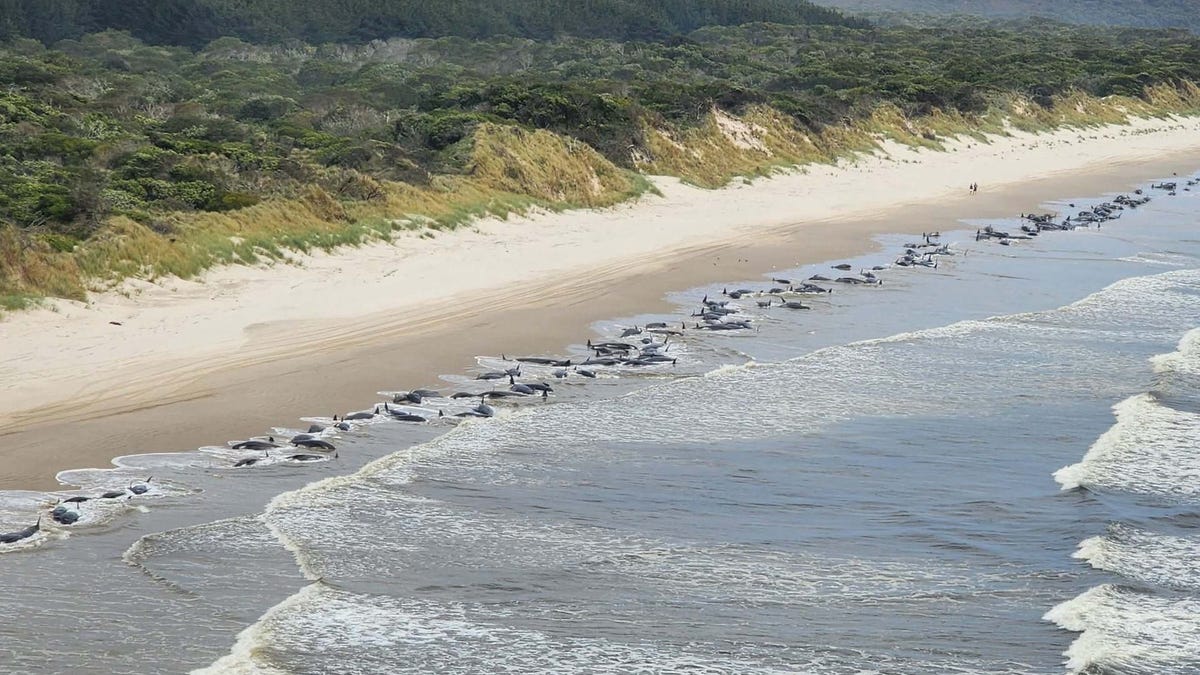A pod of around 230 pilot whales has stranded off the western coast of Tasmania, Australia.

A statement provided by the Tasmanian Department of Natural Resources and Environment revealed the extent of the stranding, suggesting “about half of the animals are alive.” A post on the Parks and Wildlife Service Facebook shows an aerial photo of dozens of stranded pilot whales along a sand flat in an area known as Macquarie Harbour.
The department notes a team of experts from the state’s Marine Conservation Program, which attends to stranding incidents, is assembling rescue gear and heading to the area. It urged the public to stay away from the site of the stranding and noted a request will be made through various avenues if help is required.
Tasmania is an island state that lies south of the Australian mainland. In September 2020, the state experienced the worst mass stranding event on record when 470 pilot whales were found beached in the region. Of those beached, 111 of the animals were saved by experts and the public.
The reason for whale stranding remains unknown but scientists believe pilot whales, which use echolocation to orient themselves, may become confused in shallower waters. They are highly social creatures, but this works against them. If one becomes disoriented and ends up beaching, dozens — or hundreds — can follow.
Though this region is a hotspot for whale strandings, it’s unusual to note that just 24 hours earlier, over a dozen sperm whales were found dead on a beach on King Island, a smaller island which lies to the north of the state. It’s believed the 14 whales were males and could be from the same “bachelor pod,” according to a report by the Australian Broadcasting Corporation.
Like pilot whales, sperm whales use echolocation to navigate underwater. They were dead when they washed ashore.
According to Kris Carlyon, a wildlife biologist at the Parks and Wildlife Service: “The most common cause of stranding is simply misadventure, The animals get themselves into trouble in a complex bit of coast or get themselves caught out in a low tide.”
source: cnet.com









